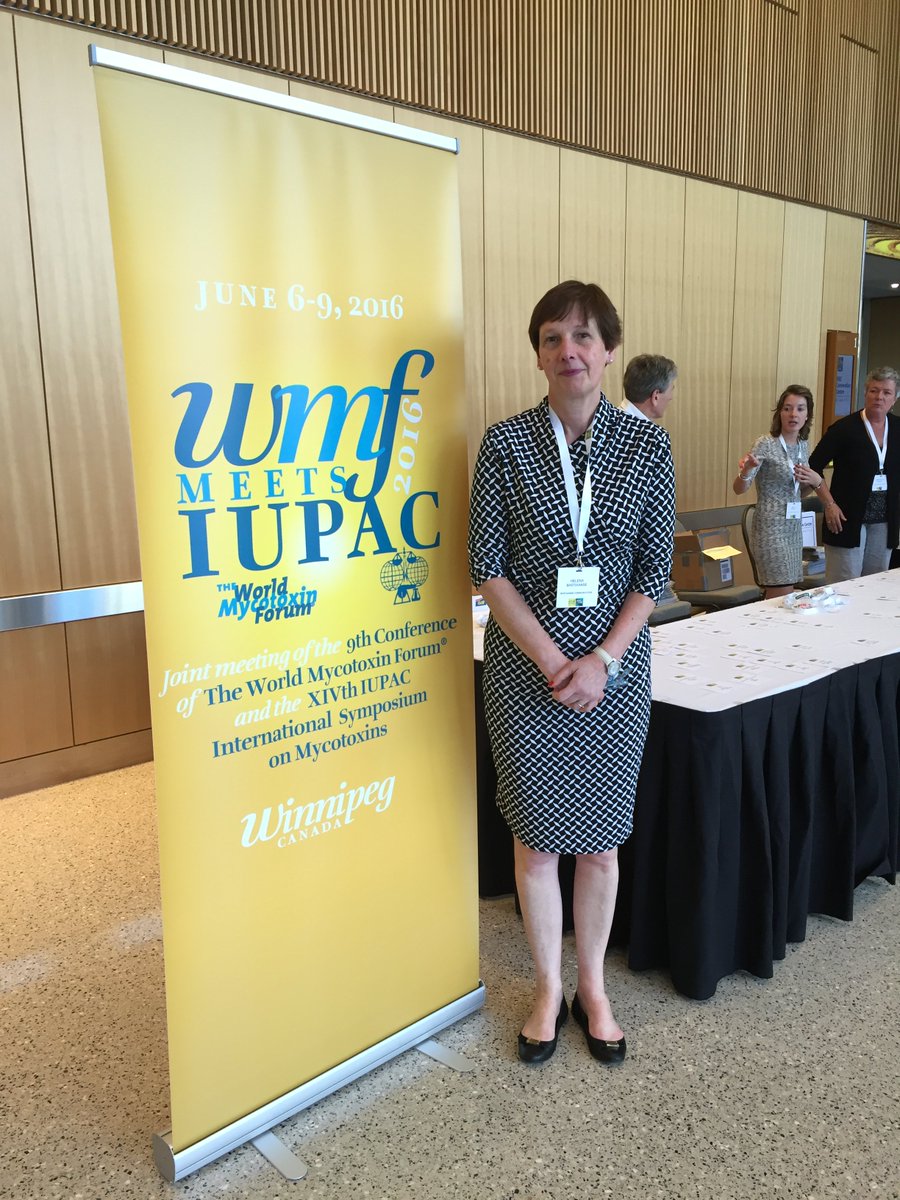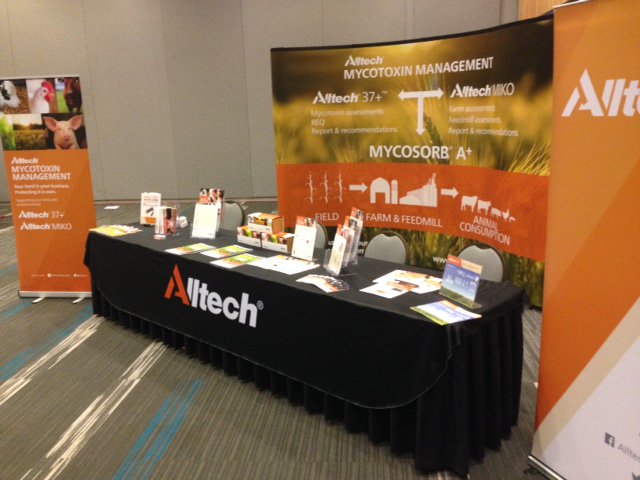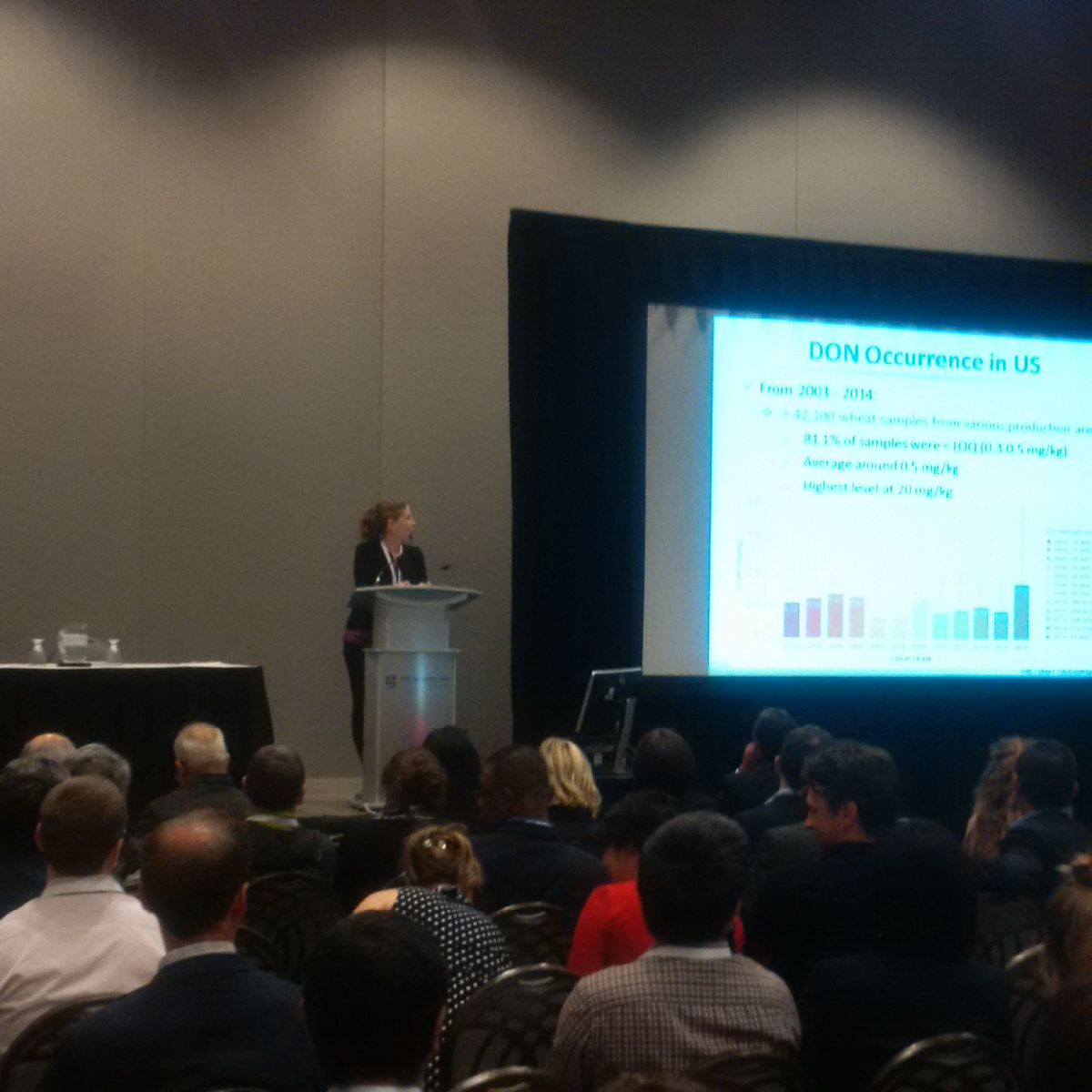 6 - 9 June 2016. Winnipeg, Canada. This event with over 400 delegates from 31 countries, combines the 9th Conference of The World Mycotoxin Forum and the XIVth IUPAC International Symposium on Mycotoxins. The conference builds on the success of the previous edition held in Rotterdam, the Netherlands (2012).
6 - 9 June 2016. Winnipeg, Canada. This event with over 400 delegates from 31 countries, combines the 9th Conference of The World Mycotoxin Forum and the XIVth IUPAC International Symposium on Mycotoxins. The conference builds on the success of the previous edition held in Rotterdam, the Netherlands (2012). The aim of WMFmeetsIUPAC – the world's largest mycotoxin event – is to increase the awareness of human and animal health risks due to mycotoxin contamination. It offers a platform for the food and feed industry, science and regulatory authorities to exchange current knowledge, to promote harmonization of food and feed safety regulations and control procedures, and to make recommendations for integrated strategies ensuring the safety and security of food and feed supply chains.
The aim of WMFmeetsIUPAC – the world's largest mycotoxin event – is to increase the awareness of human and animal health risks due to mycotoxin contamination. It offers a platform for the food and feed industry, science and regulatory authorities to exchange current knowledge, to promote harmonization of food and feed safety regulations and control procedures, and to make recommendations for integrated strategies ensuring the safety and security of food and feed supply chains. - Perspectives on FAO’s work on mycotoxins in a changing world Dr. Vittorio Fattori, Food and Agriculture Organization of the United Nations (FAO), Joint FAO/WHO Expert Committee on Food Additives (JECFA), Italy
- Economic impact of aflatoxins – situational analysis in six African countries Dr. Ranajit Bandyopadhyay, International Institute of Tropical Agriculture, Nigeria
- EU regulations and mycotoxins in the food chain: more than a drop in the ocean? Frans Verstraete, M.Sc., European Commission-Directorate General Health and Food Safety, Belgium
- MyToolBox – Safe food and feed through an integrated (e-)ToolBox for mycotoxinmanagement Prof.dr. Rudolf Krska, Department IFA-Tulln, BOKU Vienna, Austria
- From MycoRed to MycoKey: integrated and innovative key actions for mycotoxin management in the food and feed chain Dr. Antonio Logrieco, Institute of Sciences of Food Production, Italy
- Best practices for rapid mycotoxin testing Kyle Donovan, EnviroLogix, USA
- Development of an online FAO mycotoxin sampling tool and its application to aflatoxin sampling protocol for corn and groundnuts in Africa Dr. Sheryl Tittlemier, on behalf of Dr. Andy Slate, NC State University, USA
- Recent advances in adoption of aflatoxin biocontrol by farmers in Africa Dr. Ranajit Bandyopadhyay, International Institute of Tropical Agriculture, Nigeria
- The effect of corn plant density and water availability on fumonisin-producing Fusarium spp. infection and fumonisin synthesis Dr. Belinda Janse van Rensburg, Agricultural Research Council, South Africa
- Is organic farming a suitable approach to reduce mycotoxins in agricultural crops? Dr. Ingerd S. Hofgaard, Norwegian Institute of Bioeconomy Research, Norway, on behalf of Dr. Gunnar S. Eriksen, Norwegian Veterinary Institute, Norway
- Decontamination and detoxification of mycotoxins in grain to improve feed quality and animal health Dr. Natacha Hogan, University of Saskatchewan, Canada
- Avoiding the unavoidable: regional impact and human counter measures to control mycotoxins Dr. Ranajit Bandyopadhyay, International Institute of Tropical Agriculture, Nigeria
- Mycotoxin binders for the reduction of aflatoxins in animals and humans Dr. Sarah Elmore, Texas A and M University, USA
- After 125 years of mycotoxin research, what is expected from researchers now? Prof.dr. David Miller, Carleton University, Canada
 |
| Dr. Andreia Bianchini, University of Nebraska-Lincoln, USA A North American perspective on deoxynivalenol management in grains considering new Codex guidelines |


No comments:
Post a Comment